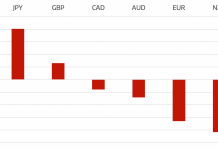What is common in hedge funds like Galaxy Digital and a16z by Andreessen Horowitz? How are crypto hedge funds decentralising traditional finance with blockchain?

Table of Contents:
- Introduction
- What are hedge funds
- What are crypto hedge funds?
- Key features of crypto hedge funds
- Key players in the crypto hedge fund space
- The future of crypto hedge funds
- Final thought
In 2022, a report by PwC showed that over a third of traditional hedge funds were investing in cryptocurrencies. Diving deeper into this realm, we find that investment funds that focus on digital assets, particularly cryptocurrencies such as Bitcoin, Ethereum, and other tokens based on blockchain technology are finding popularity by generating returns for investors by managing portfolios of crypto assets, trading in digital currencies, and sometimes investing in blockchain-related ventures.
Since Bitcoin‘s inception in 2009, the cryptocurrency market has expanded exponentially, including thousands of digital currencies and tokens. Alongside this growth, traditional financial structures have had to adapt, and one significant development is the emergence of crypto hedge funds.
These investment vehicles are reshaping the asset management landscape, drawing interest from institutional and retail investors alike. Cryptocurrencies are now viewed as a distinct asset class, gaining legitimacy as an alternative investment option. With this recognition has come the rise of crypto hedge funds, entities that aim to capitalise on the opportunities provided by digital assets while managing the associated risks.
Let us explore the world of crypto hedge funds, their features, strategies, and the firms shaping this evolving space.
Read More:
What are hedge funds?
Before diving into crypto hedge funds, it’s important to first understand what hedge funds are. A hedge fund is a private investment partnership that pools money from wealthy individuals and institutional investors, using different strategies to try and generate high returns. Hedge funds differ from traditional mutual funds or ETFs, as they often use more complex investment methods like leveraging, short-selling, trading derivatives, and arbitrage.
The term “hedge” comes from the original purpose of these funds, which was to protect against market volatility and risk. However, hedge funds have evolved and now often focus on aggressive strategies aimed at maximising returns, regardless of market direction. Hedge funds are typically unregulated or lightly regulated and are usually only available to accredited investors who meet certain financial requirements.
In the United States, hedge funds are overseen by the Securities and Exchange Commission (SEC) and, depending on the type of investments they make, the Commodity Futures Trading Commission (CFTC). These regulations are meant to protect investors while giving hedge funds the freedom to use riskier strategies to potentially achieve higher rewards. Crypto hedge funds, which invest in digital assets, also follow these regulatory guidelines but often face extra scrutiny due to the volatile and decentralised nature of the cryptocurrency market.
To invest in a hedge fund, a person generally needs to be a wealthy individual or institutional investor with significant capital. In the U.S., this usually means having at least $5 million in investable assets, while offshore funds may have lower requirements. The high entry barrier is intended to protect less experienced investors from the risks that come with hedge fund investments.
What are crypto hedge funds?
Crypto hedge funds are specialised organisations that focus on investing in digital assets like cryptocurrencies, decentralised finance (DeFi) projects, and blockchain ventures. Unlike traditional hedge funds, which invest in a mix of assets such as stocks, bonds, and commodities, crypto hedge funds mainly concentrate on digital currencies like Bitcoin, Ethereum, and various altcoins.
These funds often engage in high-risk, high-reward activities, such as initial coin offerings (ICOs), yield farming and staking. Many also use strategies like derivatives trading, short-selling, and arbitrage to profit from market inefficiencies. While there is the potential for large returns, crypto hedge funds carry a high level of risk, particularly due to the volatility of the cryptocurrency market.
Key features of crypto hedge funds
Active trading strategies: While traditional hedge funds often follow a “buy-and-hold” approach, focusing on long-term growth, crypto hedge funds tend to be much more active. Given that the crypto market operates 24/7, these funds frequently buy and sell assets to take advantage of short-term market movements.
High-risk profile: Cryptocurrencies are highly volatile, and the aggressive strategies used by many hedge funds make crypto hedge funds riskier than traditional investment options. Although there is the potential for high returns, significant losses are also a real possibility.
Professional management: Crypto hedge funds are run by experienced professionals with knowledge of both traditional finance and digital assets. These managers are skilled in handling the unique challenges of the crypto market, such as large price swings and changing regulations.
Diversification: One key benefit of crypto hedge funds is the chance to diversify. Investors can gain exposure to a variety of cryptocurrencies and blockchain projects, offering an alternative to traditional assets like stocks and bonds.
Limited availability: Like regular hedge funds, crypto hedge funds are usually only open to accredited investors. Entry thresholds are high, often starting at several hundred thousand dollars.
High fees: Crypto hedge funds typically have higher fees than traditional funds. Management fees of 1-4% are common, and performance fees can range from 15% to 25% or more, depending on the fund’s success.
Key players in the crypto hedge fund space
Several prominent firms have emerged as leaders in the crypto hedge fund sector. These funds have successfully navigated the complexities of the digital asset space, often serving as bridges between traditional finance and blockchain-based technologies.
Digital Currency Group (DCG)
Digital Currency Group (DCG) operates differently from traditional hedge funds. Instead of following the usual structure, it offers cryptocurrency funds through its subsidiary, Grayscale Investments. Investors can participate in these funds, like the Grayscale Bitcoin Trust (GBTC) and Grayscale Ethereum Trust (ETHE), via private placements or publicly-listed products. Besides managing these funds, DCG invests in various projects to foster the growth of blockchain networks. Its main cryptocurrency holdings include Bitcoin, Ethereum, and Zcash, among others.
Like many in the crypto sector, DCG has encountered challenges due to the market’s volatility. Events such as the collapse of Luna’s stablecoin and the bankruptcy of the FTX exchange have put pressure on the company. As a result, the Grayscale Bitcoin Trust has been trading at a significant discount compared to the value of its underlying Bitcoin. Furthermore, DCG closed its life and wealth management branch, HQ, in January 2023, which provided private investments, wealth advisory services, and tax planning.
Galaxy Digital
Galaxy Digital is a prominent crypto hedge fund founded in New York in 2018 by Michael Novogratz, a former Goldman Sachs partner. With an initial investment of $400 million from Novogratz, the company raised an extra $200 million by listing on the Canadian TSX exchange. Galaxy Digital not only invests in major cryptocurrencies like Bitcoin and Ethereum but also supports around 20 cryptocurrency projects, including well-known names like BlockFi and Ripple. In 2019, the firm led a $30 million funding round for Bakkt, which runs a key institutional crypto trading platform.
The company provides a range of cryptocurrency investment services, such as asset management, principal investments, and mining. Its asset management division oversees more than $1 billion in digital assets through the Galaxy Bitcoin Fund and Galaxy Ethereum Fund. Meanwhile, its principal investment division focuses on early-stage blockchain projects, and the mining division mines and sells cryptocurrencies. Additionally, Galaxy Digital is enhancing the crypto market infrastructure with its trading platform for institutional clients, called Galaxy Digital Trading (GDT), and offers banking services to crypto firms through a partnership with Silvergate Bank.
Morgan Creek Capital Management
Morgan Creek, established in 2004, has provided investment management services to institutional and qualifying clients for 20 years. It has a dedicated crypto venture capital fund called Morgan Creek Digital, which invests in early-stage blockchain and AI companies. To help institutional clients gain exposure to top cryptocurrencies, Morgan Creek Digital collaborates with Bitwise Asset Management to offer the Digital Asset Index Fund, which tracks the performance of various cryptocurrencies, including Bitcoin, Ethereum, and Cardano.
Mark Yusko, the CEO of Morgan Creek, is a strong supporter of Bitcoin and believes it could replace gold as a store of value. Morgan Creek Digital has participated in significant funding rounds, such as BlockFi’s Series D round, which raised $350 million and valued the company at $3 billion. Additionally, Morgan Creek Digital has led funding rounds for Blockdaemon and Gemini, both influential companies in the crypto sector.
Andreessen Horowitz (a16z)
Andreessen Horowitz, also known as a16z, is a major venture capital firm and hedge fund that has greatly influenced the crypto industry. Founded in 2009 by Marc Andreessen and Ben Horowitz, a16z began investing in the crypto sector in 2013. The firm focuses on investing in layer-one networks and decentralised finance (DeFi) projects, supporting notable names like Solana, Maker, Ava Labs, OpenSea, Sky Mavis, and Polychain Capital.
One of a16z’s significant investments was in the layer-one network Solana, where it led a $314 million funding round in June 2021. The firm has also invested in Maker, a stablecoin protocol that currently holds over $5 billion in assets on its platform. This strategic approach has positioned a16z as a key player in the growing crypto market.
The future of crypto hedge funds
The crypto hedge fund space is still in its early stages but is growing quickly. As the cryptocurrency market becomes more established and regulatory guidelines are clarified, institutional investors are expected to get more involved. This will likely drive the expansion of crypto hedge funds and lead to more advanced investment options.
However, there are still challenges to overcome. The volatility of cryptocurrencies remains a major risk, and in many regions, the lack of clear regulations creates uncertainty for investors. Additionally, the operational risks linked to handling digital assets, like hacking and fraud, are important factors that cannot be ignored.
Final thought
Crypto hedge funds provide a unique chance for investors to tap into the fast-growing world of digital assets. These funds combine the skills of traditional hedge fund managers with the innovation and energy of the crypto market. While there is potential for high returns, investors need to be aware of the risks and carefully research before investing in these high-risk, high-reward options.
As digital assets continue to expand, crypto hedge funds will play a bigger role in connecting traditional finance with the blockchain world. The coming years will be crucial in shaping the future of this new sector, with the possibility for substantial growth and innovation ahead.
Key takeaways:
- Hedge funds are investment tools that use different strategies to achieve high returns for their investors.
- These funds are usually only open to accredited or high-net-worth individuals and are regulated differently compared to traditional funds.
- Crypto hedge funds focus on investing in digital assets and projects based on blockchain technology.
- Some of the leading crypto hedge funds include DCG, Galaxy Digital, Morgan Creek Capital Management, and Andreessen Horowitz (a16z), among others.
Shikha Negi is a Content Writer at ztudium with expertise in writing and proofreading content. Having created more than 500 articles encompassing a diverse range of educational topics, from breaking news to in-depth analysis and long-form content, Shikha has a deep understanding of emerging trends in business, technology (including AI, blockchain, and the metaverse), and societal shifts, As the author at Sarvgyan News, Shikha has demonstrated expertise in crafting engaging and informative content tailored for various audiences, including students, educators, and professionals.






































